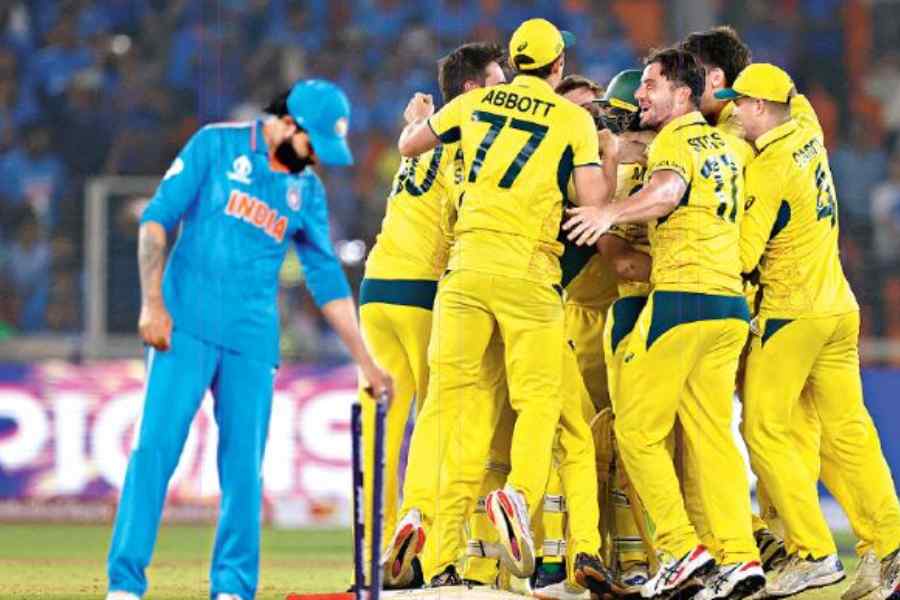The cricket World Cup has ended on a disappointing note for Indians. India’s loss to Australia in the final is, however, not the cause of this disappointment. What has soured the mood of the bona fide lover of cricket — Indian or otherwise — is the surly behaviour of the Ahmedabad crowd that witnessed the final match. In an astounding display of insensitivity, the spectators refused to acknowledge Travis Head’s heroics: Mr Head’s raised bat after his match-winning century was greeted by a deafening silence. Worse, the two umpires, Richard Kettleborough and Richard Illingworth, were booed when they were receiving their mementos. This was both strange and unwarranted: the final was free of any errors on the part of the match officials. It must be pointed out that Ahmedabad’s spectators had not given a good account of themselves even earlier: the captain of Pakistan was subjected to prejudiced condemnation during India’s match against their arch-rivals. To the host country’s utter shame, the victorious Australian captain, Pat Cummins, mentioned the dismal attitude of Ahmedabad’s crowd and contrasted it with the conduct of cricket fans in the rest of the country.
There had been a line of thought that the final of a tournament as prestigious as the World Cup should have been hosted by a city with a better cricketing pedigree, history and behaviour. India was spoilt for choice in this respect. Calcutta, Chennai, Mumbai, Bengaluru — any of these cities could have been a better venue for the final. Ahmedabad’s sore losers have shown that there indeed is merit in this argument. Of course, their comportment is not representative of the demeanour of the average Indian cricket admirer. This World Cup has seen Indian crowds cheering — cerebrally and fairly — in the best tradition of the game. Unfortunately, Ahmedabad remained an exception to the rule — not once, but twice. This leads to an attendant, intriguing speculation. Cricket, today, is a globalised entity. The international flavour of the Indian Premier League — one of the game’s most lucrative tournaments — bears evidence of this. But is the globalisation of cricket being accompanied by a deepening of the spirit of parochialism? Ahmedabad has shown that despite all the talk of the importance of sportsmanship, it is possible to conflate patriotism with parochialism in a game that remains, in some regressive venues, war minus the shooting.











